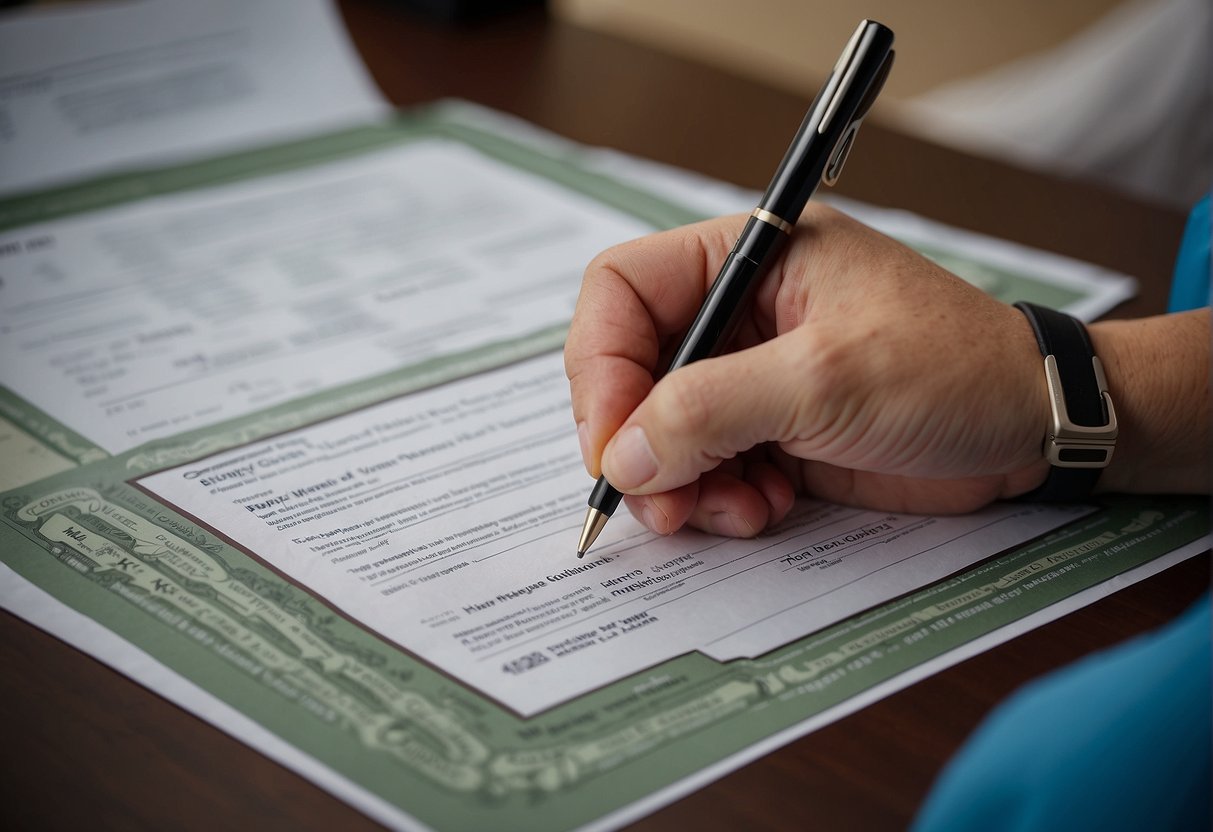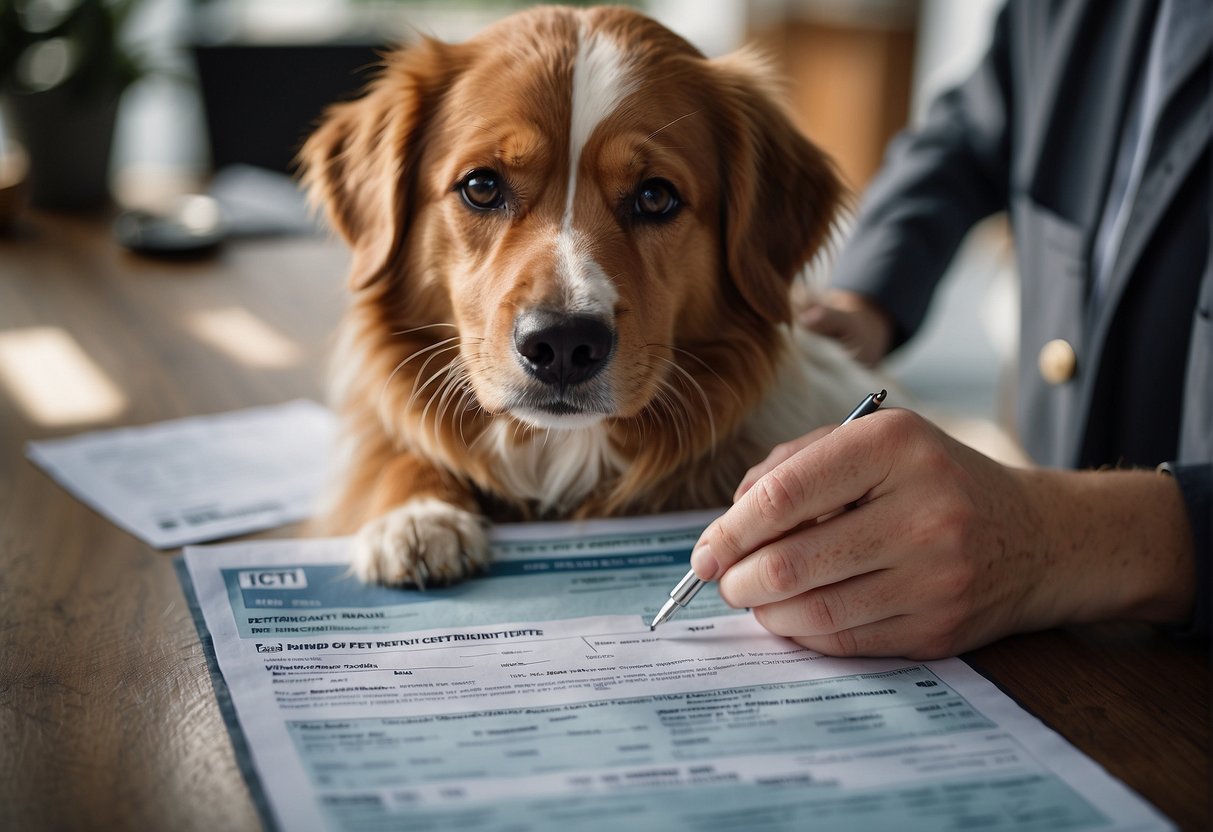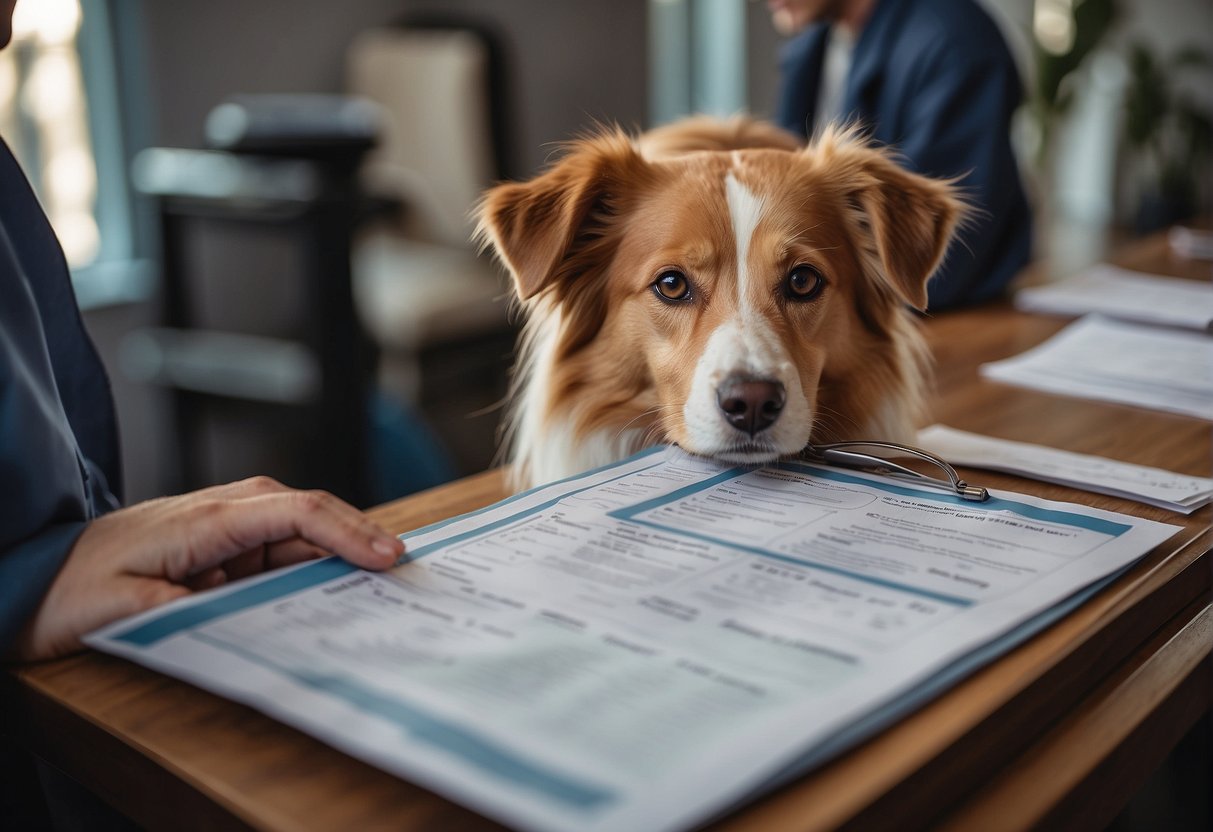Traveling internationally with a pet requires preparation and understanding of various health and safety regulations. A pet health certificate is a crucial document that certifies your pet is healthy and meets the specific entry requirements of the destination country. The process of obtaining this certificate involves a visit to a veterinarian who is accredited by the USDA’s Animal and Plant Health Inspection Service (APHIS). They will conduct a thorough examination of your pet and ensure that all vaccinations are up-to-date and that the pet is fit for travel.

Different countries have varying requirements for pet importation, including quarantine periods and specific treatments for diseases like rabies. It is essential to research these requirements well in advance, as some treatments need to be administered months before travel. Moreover, once a USDA-accredited veterinarian has completed and signed the health certificate, in many cases, the document must be endorsed by USDA APHIS to be valid for travel. This step can take additional time, so planning is vital to ensure all paperwork is in order well before your departure date.
Key Takeaways
- A pet health certificate is mandatory for pet international travel, ensuring they meet the destination’s entry conditions.
- Country-specific requirements can include vaccinations and treatments, and they vary significantly, so advance research is crucial.
- Timely planning of the certification and endorsement process is vital to avoid travel disruptions.
Understanding Pet Health Certificates
When traveling internationally with pets, securing the right documentation is crucial. This section explains the importance of pet health certificates, their types, and their role in the travel process.
Definition and Purpose
Pet health certificates are official documents that verify a pet’s health and vaccination status. These certificates are required by airlines and foreign countries to ensure that the pet is fit for travel and does not pose a health risk. The USDA’s Animal and Plant Health Inspection Service (APHIS) plays a key role by endorsing these certificates, with USDA Accredited Veterinarians being authorized to issue them under the National Veterinary Accreditation Program.
Types of Certificates
There are various forms of health certificates for pets, each pertaining to different travel regulations:
-
APHIS Form 7001: A widely recognized international health certificate, which must be signed and dated by a USDA Accredited Veterinarian.
-
Country-Specific Certificates: Some countries have unique requirements and provide their own certificate forms that must be completed.
Regardless of the type, it is essential to understand the specific requirements of the destination country and airline, as these can significantly differ. Travelers are advised to consult with a USDA Accredited Veterinarian to choose the appropriate certificate and ensure all regulations are met for the journey. Information about the procedures to obtain a pet health certificate for international travel can be a valuable resource for pet owners planning to travel abroad.
Getting Started with Certification Process
Before international travel with pets, it’s essential to understand the certification process and locate properly credentialed veterinarians for health checks and documentation.
Determining the Need for a Certificate
The certification process begins with determining the pet’s destination country requirements for entry. Each country has its own regulations, and many require a health certificate. Accreditation standards and NVAP requirements are pivotal in understanding these prerequisites.
Finding a USDA Accredited Veterinarian
The second step is finding a USDA Accredited Veterinarian who is authorized to complete the health certification. They are certified through the National Veterinary Accreditation Program (NVAP) and have the authority to sign off on health certificates after confirming the pet’s fitness for travel.
Country-Specific Health Requirements

When preparing for international travel with pets, it is essential to understand and comply with the health requirements of the destination country. These regulations can vary significantly and are designed to prevent the spread of diseases.
Researching Destination Country’s Regulations
Pet owners must research the destination country’s specific health requirements for pet travel. This often includes obtaining an international health certificate, sometimes known as a pet passport, which verifies that the pet has met all health requirements. Veterinary services, as provided by the USDA, or official government websites of the destination country, offer the most reliable information.
Information on required vaccinations and treatments should also be sought out, as these can differ greatly from one country to the next. Failure to comply with these regulations can result in the pet being denied entry, quarantined, or in some cases, returned to the country of origin.
Common Requirements and Restrictions
Pets usually need to be vaccinated against rabies and other diseases and might require specific treatments before travel. Some countries may impose breed restrictions, have different rules for different species, or require quarantine upon arrival. Pet owners should ensure they include all original documents required by the destination country: International Health Certificate, vaccination certificates, and laboratory test reports when required.
There may also be requirements for microchipping and even a waiting period after vaccinations. All planned treatments and vaccinations should align with the timing stipulated by the destination’s regulations; too early or too late, and the pet might not comply. It is vital to check if additional conditions apply for animals that are not typically classified as pets, such as birds or reptiles.
Each country has its own set of rules that can be subject to change, so travelers should verify the information close to their travel dates and consider any potential COVID-19 test requirements for international travel that may be in place.
Preparing Your Pet for International Travel
When traveling internationally with pets, ensuring your pet’s health and documentation are in compliance with your destination country’s regulations is critical. This involves microchipping, up-to-date vaccinations, and coordinating with accredited professionals for necessary health certifications and treatments.
Microchipping and Vaccinations
Ensuring that pets are properly microchipped and that their vaccinations are up to date are two of the most important prerequisites for international travel. A microchip is a permanent form of identification that can greatly increase the chances of reunion if a pet is lost while abroad. It’s essential for dogs and cats to have a microchip that meets ISO standards, which is widely accepted in many countries.
Furthermore, a complete vaccination record is mandatory for pets when crossing international borders. Commonly required vaccinations include:
- Rabies
- Distemper
- Hepatitis
- Parvovirus
Additionally, some countries might require specific immunizations depending on the risk of certain diseases.
Scheduling Appointments and Treatments
To prepare for international travel with pets, owners must schedule appointments with an accredited veterinarian well in advance of their departure date. During these appointments, pets receive a thorough health examination, and the veterinarian can provide treatments for parasites, which is often a requirement for international travel.
It’s also vital to obtain the necessary health certificates within the correct time frame as stipulated by the destination country. Planning ahead is crucial since some treatments need to be administered within a specific timeline. For instance, the rabies vaccination often needs to be given a set number of days before travel.
Traveling with pets also involves planning for their comfort and safety. Owners should make necessary arrangements for transport, including an appropriately sized carrier and planning for breaks during the journey if needed. Consultation with an experienced travel nurse or pet travel specialist can provide additional insights and ease the process.
The Veterinary Health Certification Process
The journey of taking a pet abroad requires navigating through a rigorous health certification process. This ensures the well-being of pets during travel and adheres to international regulations.
Official Examination by a Veterinarian
A thorough examination by a USDA-accredited veterinarian is the foundational step in the certification process. The accredited veterinarian will assess the pet’s health to ensure it meets the destination country’s entry requirements. They check for signs of infectious diseases, ensure vaccinations are up-to-date, and verify the animal’s fitness for travel.
Filling Out the Health Certificate
Once the examination is complete, the veterinarian must detail their findings on the appropriate health certificate. For international travel, the commonly required document is the APHIS Form 7001, a standard International Health Certificate. This form serves as the official documentation of the pet’s health status and must include all necessary details as per the importing country’s veterinary services requirements. It’s critical that the information provided is accurate and complete to prevent any travel delays or denials at the border.
Endorsement by USDA APHIS

When traveling internationally with pets, obtaining USDA APHIS endorsement for health certificates is crucial. This endorsement certifies that the pet’s health documents comply with the importing country’s regulations.
Submit Documents for Endorsement
To begin the process of endorsement, pet owners must submit their pet’s health certificate along with any additional required paperwork to their respective USDA Endorsement Office. It is imperative to include all necessary documents to avoid delays. The packet should contain the following:
- Pet’s Health Certificate
- Proof of Rabies Vaccination
- Test Results (if required by the destination country)
- Owner’s Contact Information
Carefully review all requirements of the destination country well in advance of the travel date.
Payment of Endorsement Fee
The endorsement fee payable to USDA APHIS must accompany the submission of documents. USDA APHIS charges a fee for each health certificate endorsed. Here is a breakdown of the payment methods:
- Credit Card: Preferred method for its ease and speed.
- Check or Money Order: Must be made out to the USDA.
Ensure that the payment details are accurate and the amount is correct as per the latest fee structure to prevent any delays in the endorsement process. The endorsement fee is non-refundable, and payment must be provided before endorsement can occur.
Finalizing Documentation
Finalizing your pet’s documentation for international travel is a multi-step process that involves thorough checks and proper organization of necessary certificates. Accuracy and adherence to regulations are key in successfully preparing your pet for travel.
Reviewing Certificate Endorsement
Obtain the USDA-endorsed veterinary health certificate, which is a critical document for pet travel. It is important to ensure that all details are accurate and meet the destination country’s requirements. The Veterinary Export Health Certification System (VEHCS) may be used for obtaining digital endorsements where applicable, streamlining the process.
- Checklist for Endorsement:
- Ensure accuracy of pet information.
- Verify completion of vaccinations.
- Confirm certification by a USDA Accredited Veterinarian.
Organizing Required Documentation
Compile all required documentation in an orderly fashion. This typically includes the health certificate, vaccination records, and laboratory test reports. Keep multiple copies of these documents as backups.
- Organizational Tips:
- Bold each pet’s name on documentation for visibility.
- Keep documents in a water-resistant folder.
- Include a summary sheet with key information for quick reference.
Making sure that all documentation is in order and properly endorsed by USDA standards is essential for a smooth journey for one’s pet.
Additional Considerations for Pet Travel
When planning international travel with pets, attention must be given to quarantine requirements and regulations for service and emotional support animals to ensure a smooth journey.
Quarantine Protocols
Countries may impose quarantine periods for pets to prevent the spread of diseases. This period can vary, with some countries requiring a titer test to prove vaccination efficacy. It’s crucial for pet owners to check the destination country’s quarantine rules well in advance.
- Pre-arrival preparation: Ensure all vaccinations are up to date and that you have documentation readily available.
- Titer tests: Some destinations may require a blood test to measure post-vaccination antibody levels.
- Duration and cost: Quarantine can range from a few days to several months, and fees may apply.
Traveling with Service and Emotional Support Animals
The regulations for service animals and emotional support animals might differ from those for pets. Airlines and destinations may have specific requirements.
- Documentation: Always carry proof of the animal’s status and any required health certifications.
- Airlines policies: Check with your airline as they may have their own guidelines for cabin travel with these animals.
Owners of service animals should be aware that while their animals are generally permitted to accompany them, they may still need to meet destination health requirements. Emotional support animals, on the other hand, may not always be recognized and could be subject to the standard pet travel regulations.
Shipping and Handling Procedures
When planning for international pet travel, understanding the specifics of Shipping and Handling Procedures is essential. The two key components involve selecting an appropriate shipping method and ensuring all preparation steps are completed prior to departure.
Choosing a Shipping Method
One of the primary considerations when shipping pets internationally is selecting a reliable and proficient courier service, which often leads pet owners to consider options like FedEx. FedEx provides a range of services suitable for pet transport, offering features that ensure the safety and comfort of animals during transit. It’s important to compare service options, noting the differences in transit times, temperature-controlled environments, and tracking capabilities.
Preparing for Departure
Prior to a pet’s departure, pet owners must complete several critical steps, starting with ensuring all required vaccines are up-to-date. A thorough check of the pet’s vaccination records is necessary to meet the destination country’s import regulations.
In addition to health preparations, pet owners should also be mindful of liquid restrictions for pets’ carry-on items, as policies may vary by airline and country.
Moreover, the proper completion and shipping of health certificates are mandatory. Utilize the USDA’s Pet Owners Checklist to assemble all essential documents and avoid delays in endorsements. It’s crucial that the health certificate is shipped to the USDA endorsement office, accompanied by the aforementioned checklist, to ensure compliance with international pet shipping regulations.
Pre-trip planning should account for every detail, even down to the type and size of the travel crate, to ensure compliance with the airline’s standards and to guarantee the pet’s comfort during the journey.
Upon Arrival

Upon arriving at the destination country with pets, there are specific procedures that must be followed to ensure the animals are admitted without issues. These include customs regulations and health inspections which are critical steps to maintain the safety and wellbeing of both the pet and the local fauna.
Customs and Border Protection
Every country has its own Customs and Border Protection processes that must be adhered to when entering with pets. This typically involves presenting the proper documentation for the animal. For dogs and cats, it is imperative that owners provide an international health certificate, which is a document confirming that the animal is free from infectious diseases and has had all required vaccinations. Moreover, countries may require import permits for pet birds or other animals, and failure to comply with these mandates might result in the animal being quarantined or denied entry.
Addressing Health Inspection
Once the pet arrives in a foreign country, a health inspection is generally necessary to validate the animal’s health status as per the documentation provided. During this procedure, officials may verify the animal’s health certificate, vaccination records, and sometimes perform a physical examination of pets, including dogs and cats. Ensuring the animal’s documentation is accurate and complete before departure can expedite this process.
Pets traveling internationally should have their health certification done in accordance with the destination country’s specific requirements, which can vary significantly. It is advisable for pet owners to familiarize themselves with the requirements well in advance of travel to avoid any complications upon arrival.
Aftercare and Follow-Up

After your pet has traveled internationally, it’s critical to ensure their health and adaptability to the new environment. This includes post-travel check-ups and ongoing health maintenance.
Consultation Post-Travel
Upon arrival, schedule a follow-up appointment with a local veterinarian to reassess your pet’s health. This ensures that any stress-induced issues or exposure to new diseases are quickly identified and treated. The vet can verify that all vaccinations are up to date with local regulations, and prescribe any needed treatments.
Maintaining Pet Health Overseas
Pet health maintenance in a new country involves regular vet checks and adherence to preventative care. Always ensure your pet’s vaccinations are current, and be proactive in adapting to new health challenges in the area. This might include flea and tick treatments or other preventative measures suited to the local climate and disease prevalence. Remember, a well-planned routine for your pet’s healthcare is as crucial overseas as it is at home.
Frequently Asked Questions

This section answers important queries related to obtaining and understanding the health certificate requirements for pets traveling internationally.
How do you obtain a health certificate for a pet to travel internationally?
A pet owner must visit a USDA-accredited veterinarian who can issue an official health certificate required for pets traveling outside the United States.
What are the requirements for a USDA endorsement on a pet’s international health certificate?
For a USDA endorsement, the pet’s health certificate must be signed and dated by a USDA Accredited Veterinarian and may include vaccination certificates, laboratory test reports, and payment of the endorsement fee.
What documents are required when flying with a dog to another country?
Documentation typically includes the pet’s health certificate, vaccination records, and any additional reports required by the destination country. You can find specific details through resources like the American Veterinary Medical Association.
Where can you find a certified veterinarian to issue an international health certificate for your pet?
Owners can locate a certified veterinarian by referring to the USDA’s list of accredited veterinarians responsible for certifying pets for international travel.
How much is typically charged for issuing an international health certificate for a pet?
Fees for issuing an international health certificate vary by veterinarian and the complexity of the requirements for the destination country. Contact your local accredited veterinarian for specific pricing.
Do all airlines require a health certificate for pets traveling on their flights?
Most airlines require a health certificate for pets; however, requirements can vary. It’s advisable to confirm with your specific airline or travel company regarding their policies.
Leave a Reply